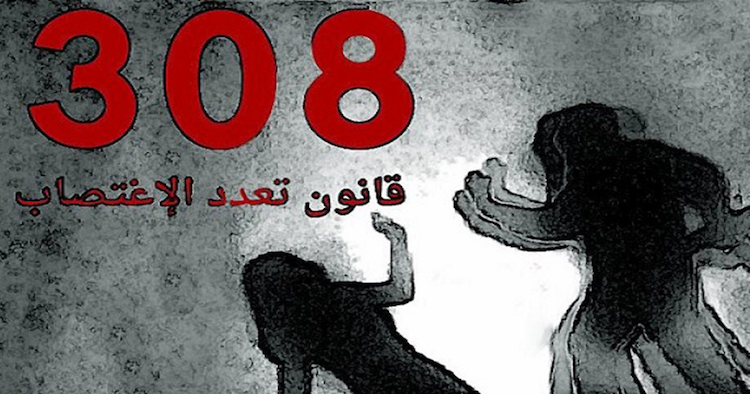By Phil Harris
ROME (IDN) – Many girls and young women in a number of countries still live in fear of what has been called “stone age” legislation that allows men to rape and then marry them to avoid prosecution.
One such country is Jordan, where the plight of these actual and potential victims is expected to take a turn for the better after the Jordanian Cabinet recommended repeal of Article 308 of the country’s penal code on April 15.
That recommendation – which would abolish a provision under which sexual assaulters can avoid imprisonment provided they marry their victims – now awaits final approval by Parliament and King Abdullah II.
According to Equality Now, which works for the protection and promotion of the human rights of women and girls around the world, this could be granted by the end of April.
Praising women’s advocacy groups and parliamentarians for years of activism which has resulted in widespread public support for repeal of Article 308, Suad Abu-Dayyeh, Middle East and North Africa consultant for Equality Now, said that “people have really started to understand the negative impact this article has on women and girls … a girl who has been raped is a victim, and she needs the support of her family and also the government.”
One of those victims is Noor (not her real name), who was a 20-year-old when she was raped by a 55-year-old man. Her story describes the reality behind legislation that has so far condemned girls and young women to seeing their sexual assaulters escape with impunity.
Noor, who told her story to the Sisterhood is Global Institute Jordan, recounts how it all started when she tried to seek to work after failing to continue school studies.
“I left school to work in a mobile shop in the surrounding neighbourhood of my home. The owner of the shop, who is divorced and has children, knows that the financial situation of my family is quite difficult, so he proposed to increase my salary through working more hours in his home; taking care of his kids, cleaning the house and cooking for his family.
“Due to the financial situation of my family, I accepted his offer and started to work also in his house. One day, he came over to the house and gave me two pills to drink since I had a headache. I couldn’t remember what happened next; I woke up and found myself naked and raped.
“I couldn’t tell my family what had happened. I cried and cried not knowing what to do. At that moment, I realised that my family would be devastated. He tried to calm me by saying ‘I will marry you’ and he promised to go and ask for my hand. In order to make me more confident, he brought a piece of paper and we both signed a marriage contract.
“I went home without knowing what to do. I was frightened, devastated, and thought of keeping silent. That month, I didn’t get my period and I realised that I was pregnant. I told him that I was pregnant and tried several times to abort the baby without success. My mother managed to take me to a private hospital to deliver.
“I decided to go and file a complaint at the police station because of my baby. I accused him of raping me. He then proposed to marry me under article 308 of the Jordanian Penal Code where the prosecution will be stopped if he does so. With all the hatred I have in my heart, my family forced me to marry him so as to save the ‘family’s honour’.
“I married him and I moved to live with him with all the negative memories of rape and deception. I thought that my life with my baby might make me happy, but I was very wrong; my situation deteriorated.
“My only hope from marrying him was to make my baby safe. I was keen to register him in his father’s name, but I failed. He started to negotiate by offering to recognise the baby while divorcing me. I accepted that because I could not bear living with my rapist.
“We went to court and I asked for a divorce giving up my legal rights. Still to date, I could not register my baby in his father’s name and my battle to do still continues.”
Noor’s story is just of many that are repeated day in and day out, not only in Jordan but in many other countries.
Girls and women in Lebanon, for example, face a similar situation under Article 522 of the country’s penal code, which exonerates rapists if they marry their victims
To draw attention to the issue, activists hung 31 wedding dresses from nooses on Beirut’s seafront on April 21 as the country’s parliament prepares to vote on abolition of Article 522.
The installation was designed by Lebanese artist Mireille Honein who told AFP that Article 522 had left women “without an identity” and was “shameful for those imposing it on them.”
The United Nations estimates that rape and sexual abuse affect nearly one billion women and girls over their lifetime. [IDN-InDepthNews – 25 April 2017]
Image credit: Equality Now
IDN is flagship agency of the International Press Syndicate
facebook.com/IDN.GoingDeeper – twitter.com/InDepthNews

